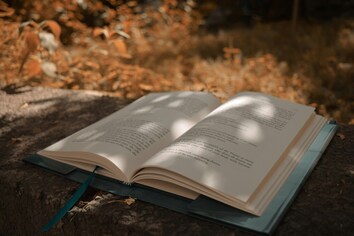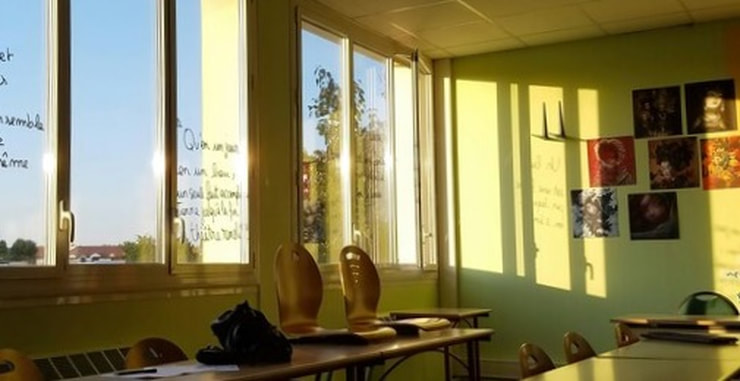|
This year has been my first outside of formal education. From finishing secondary school and going to uni, I’m going to consider what lessons a dizzying year without being ‘taught’ is teaching me. Though I am still fixed to educational spaces through my job in a primary school, I feel as though suddenly transcending the official status of a student is a dizzying milestone. It feels like my whole, wholesome life has been lived on the cobbled streets of my university. Though I’ve only been there for two years, moving out of home and my comfort zone, I remember only my very fond memories. I won’t ever understand how time works. From the final day of teaching in second year to when I rejoin in September, 16 months would have passed (god bless university summers of eternity). That’s 16 months without seeing the same familiar, friendly faces on a daily basis, without cramming cereal before dashing to a lecture, or getting ready for the ritual of a pint. Of course, new habits and patterns have emerged to replace these (like getting bombarded with six year olds on a Monday morning). However, for much of my year abroad I’ve felt quite unrooted. Without the daily buzz of a school of uni routine, bumping into friends on the way to classes, life does feel quite different. There are things about living within standard educational institutions that have ingrained into my bloodstream. Stepping back, it seems like from the moment we join nursery and primary school, we’re on the treadmill of receiving information and regurgitating it back out. Obviously, it becomes a bit more intense than that, as we become adjusted to the whole learn, exam, repeat system. Sometimes it feels like a hamster wheel. In stepping aside from this all, and knowing that I’ll briefly be going back to it when I return from my year abroad, it does feel rather disorientating. So many studies on the psychology of habit making show that doing something for so long slowly chips away, and sculpts your smallest behaviours and actions. I was, and still am, in the mindset of a striving student. Where, after one task or essay is done, I look for the next… and so it begins again. I’m constantly asking ‘what next?’ and ‘where do I need to go now?’. I’m not saying this is good or bad, only that I’ve noticed what effects it’s had on me since taking time out. Most days I wake up and don’t quite know what to do with myself. I have been so used, for most of my life, to having tasks set out which I need to do. A timetable to follow. Classes to go to, essays to work on, socials to attend. It’s not that I don’t have anything to do all day, working in a school, but I do have a lot more free time. Throughout my whole life, I’ve always been juggling a ton of other projects alongside my academics. If my balance were any better, I might’ve been a plate spinner in the circus. As I only have this job to revolve around, and am far away from the communities I usually circulate within for all my various activisit-y or social fix, it feels like a huge chunk of what I’ve always done, being busy with all sorts of things, has been taken out. What am I learning from this, then? I’m learning how to be slower. And it’s frustrating at times, being distanced from a host of little things that kept you busy before. All these external activities that I’ve been functioning on have disappeared. I’m having to rebuild these from before, but a lot more consciously as I’m in a new place and have to actively seek out opportunities I’m interested in. There’s a bit of that, and learning to be by myself in unfamiliar terrain. It’s hard to summarise the lessons I’ve learnt 1) working in a school and 2) working and living in a foreign country, and the school year isn’t even over yet, so stay tuned for a part two!  Read of the Month Orientalism by Edward Said Wow this really is getting rouge, we’ve had graphic novels, autobiographies and short stories, now adding a hefty bit of critical theory! Said’s Orientalism, however, isn’t all as intimidating as it seems. Witty at times, and well worth a dip into, especially with his insight on Palestine and the history of how European powers tend to ‘other’ those outside of it. Anisha Minocha is studying English and Spanish at the University of St Andrews, currently living in Andalucía. She is a writer and poet whose work has been showcased in winning competitions, readings and anthologies. She co-edits SINK Magazine, which gives a platform to Northern creatives, and founded the "Roots"" project with Friends of the Earth that looks at the intersections between South Asian identity and ecology. Twitter: @anisha_jaya
0 Comments
Your comment will be posted after it is approved.
Leave a Reply. |
This section will not be visible in live published website. Below are your current settings: Current Number Of Columns are = 1 Expand Posts Area = Gap/Space Between Posts = 15px Blog Post Style = card Use of custom card colors instead of default colors = Blog Post Card Background Color = current color Blog Post Card Shadow Color = current color Blog Post Card Border Color = current color Publish the website and visit your blog page to see the results Categories
All
We're always interested to hear from talented young writers, so if you'd like to feature as a guest author then hit us up for more details.
|
Student blog: What's new?
Author
Write something about yourself. No need to be fancy, just an overview.
This website uses marketing and tracking technologies. Opting out of this will opt you out of all cookies, except for those needed to run the website. Note that some products may not work as well without tracking cookies.
Opt Out of Cookies

 RSS Feed
RSS Feed